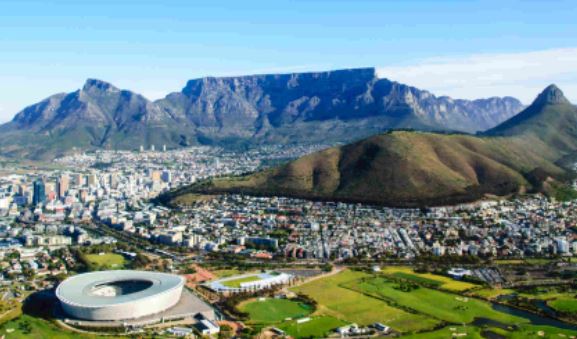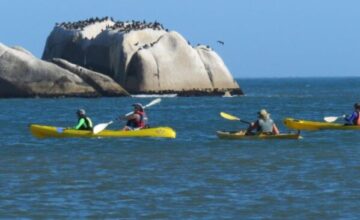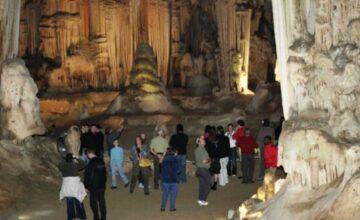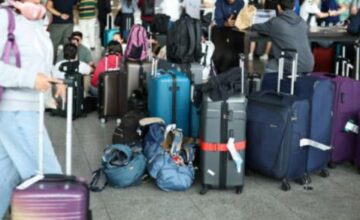
With a rich history and diverse culture, South Africa is as glorious as it gets. From its dramatic landscapes to exotic wildlife, its wonders draw throngs of tourists every year.
Be it Durban, Cape Town or Johannesburg, the country is nothing but a paradise. An increasingly popular holiday destination, it’s quite ironic that South Africa is shrouded in a dozen of misconceptions.
From silly rumours about crime rate in South Africa to the popular belief that wild animals roam the streets, you’ll actually be surprised by the absurd nature of some of these stereotypes.
Well, don’t let these myths get to you. Here are eleven misconceptions about South Africa that are completely false.
1. There are only black people in South Africa
How did you know? We are called the Rainbow Nation because we are all black. Seems legit. Therefore, Apartheid must then also be a myth.
With 80% of South Africa’s population being black, it is actually not surprising that foreigners seem to think that all people from South Africa are in fact black. However, the black population is made up of various different cultural groups and speak 11 different official languages! South Africa, truly is an interesting and exciting mix of people.
2. South Africa is a zoo
The thought that South Africans have wild animals roaming around in the streets is a common misconception. As dangerous and exciting as this would have been, this is unfortunately just a myth. Our wild animals are safely kept in nature reserves such as the Kruger National Park, which is better for us and for them. Ranking as one of the best places in the world to see wildlife, the Kruger National Park is one of the largest game reserves in Africa, covering an area of 19,485 km² and housing over 800 species.
3. People who dress in traditional clothing are from tribes
Museums and performance acts are what preserve the history and origin of places. Without these, they would be lost to globalisation. However, there seems to be confusion when it comes to South African culture and what is done in honour of old customs and traditions and what is done in reality. The truth of the matter is, that after the tribal dance at V&A Waterfront in Cape Town, the performance actors have a smoke break, go on their cell phones and eat pre-packed sandwiches.
Don’t get me wrong. We completely buy into tourism and love dressing up (or should I say, down), but we also love living in brick houses, using smartphones and working in the city.
4. People from South Africa all know each other
Yes, I know Joe. He lives in the hut next door to me, next to the rest of the 53 million people in South Africa. Our population is not as small as it may seem and it is rapidly growing. If we look at the census from 2007 and the census from 2011, the population went up by 3 million. That is almost a million people a year…
5. We live in huts
Our country is rich with beautiful architecture ranging from Cape Dutch and Victorian style houses to the Soccer World Cup Stadiums of which The First National Bank Stadium in Johannesburg, is the largest in Africa. This particular stadium served as the site of Nelson Mandela’s first speech after his release from prison, as well as the location of his memorial service.
6. We hunt for food
Yes, we hunt for food, but the difference is, we hunt because we want to and not because we need to. Many fathers and sons see hunting as a bonding experience. In short, we get our meat, just like you, from the local butchery or grocery shop.
Furthermore, the Hipster scene (following the latest healthy eating habits and fashion trends), has quickly caught on among young people in South Africa. Many of these young individuals have assumed a similar outlook to the Hippy generation of the 70’s, which adopts vegetarian and vegan diets. (Quite the contrary to hunting).
7. We all have AIDS
We don’t all have AIDS. We do however, have one of the largest percentages of people who have contracted HIV, mainly due to the large portion of society who work in the mines. Miners are away from their families for months at a time, getting by on minimum wage. Often these individuals then contract HIV through sexual relations outside of wedlock and infect their wives when they return home.
Context is everything. If you travel to the poorer parts of the country, you are more likely to come across people who suffer from AIDS, but you are less likely to come across it in the wealthier areas. Just as one is more likely to come across drugs and theft in a poor neighbourhood rather than a middle-class neighbourhood.
8. We have slaves
Slavery was abolished in 1834 and paying below minimum wage is considered a criminal offence. Employers must abide by at least, the Basic Conditions of Employment Act.
9. We don’t have electricity
As much as South Africans like to moan about Eskom (a South Africanelectricity public utility) and their load-shedding (the interruption of an electricity supply to avoid excessive load on the generating plant), we do in fact have electricity.
10. It is always sunny in South Africa
Even though South Africa has been labelled sunny South Africa, we don’t always provide sunshine. This is a common misconception. Even though our winters do not even compare to that of Europe’s, we do get snow on the mountains, rain storms, floods and thunder. All of which, could quite easily happen in one day. One never knows when the weather will take a turn in South Africa and no weathermen or weatherwomen seem to get it right. If you are planning on visiting, make sure you layer up. That way, you can easily dress up or down depending on the mood of the sky.
11. South Africans are all poor
Poverty is a real issue, it is not to be taken lightly, but it is a global issue. It is not solely restricted to Africa. In terms of our positioning as a nation, it is arguably more beneficial to us to create international relationships and put ourselves on the map as an economic entity, rather than a desert that houses thin, half naked black people and lions.
Instead of adopting a sympathetic outlook, rather take on a perspective that stems from curiosity. Not only will this help you to unfold the little treasures of this beautiful country, but it will also add to your cultural understanding of the country you are in. It’s a problem free philosophy. Hakuna Matata.




